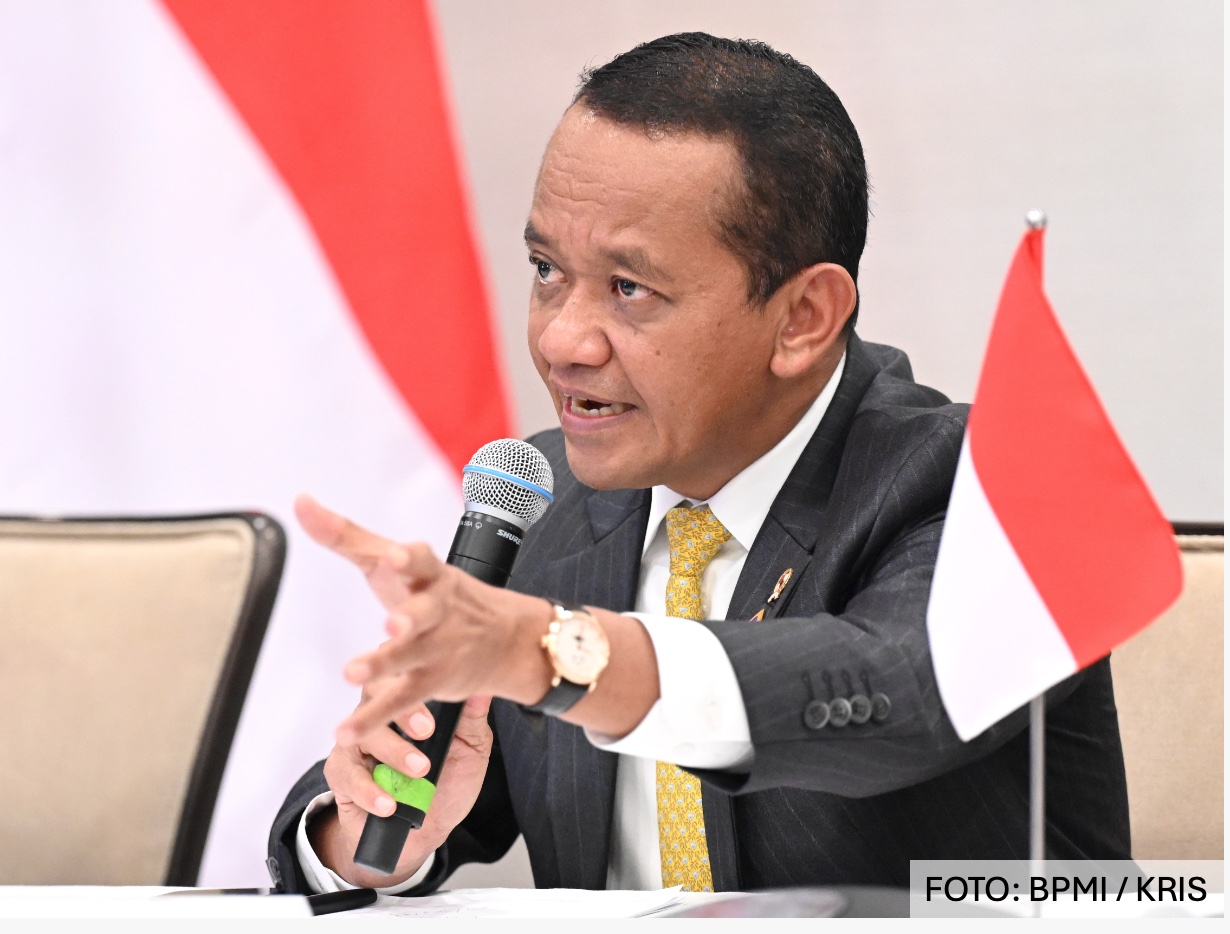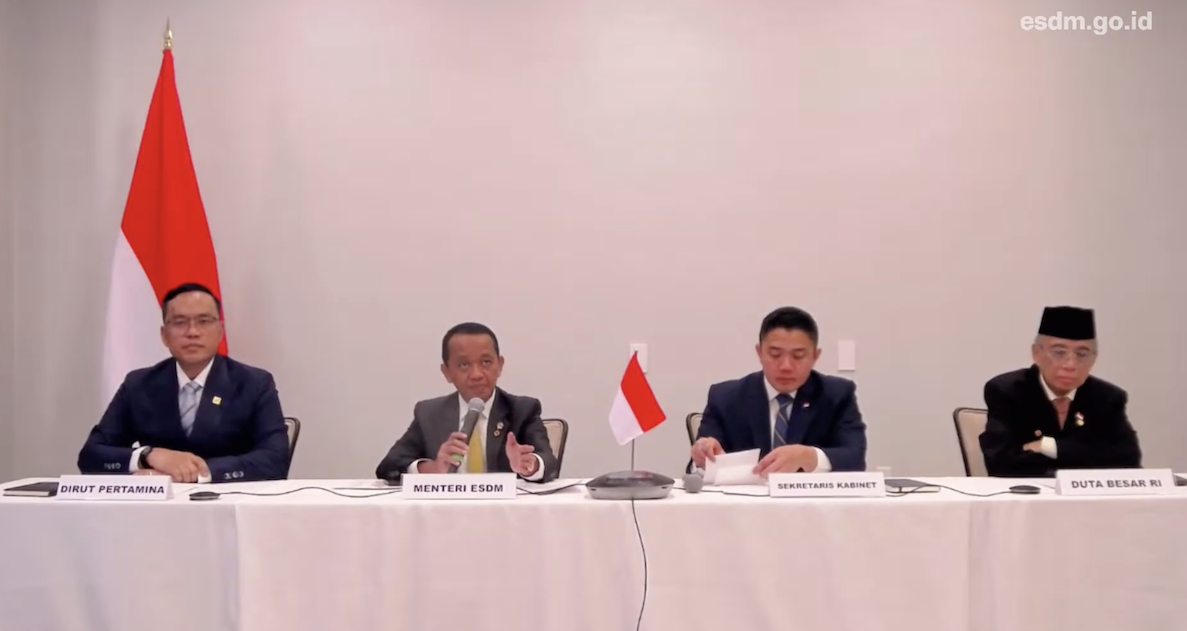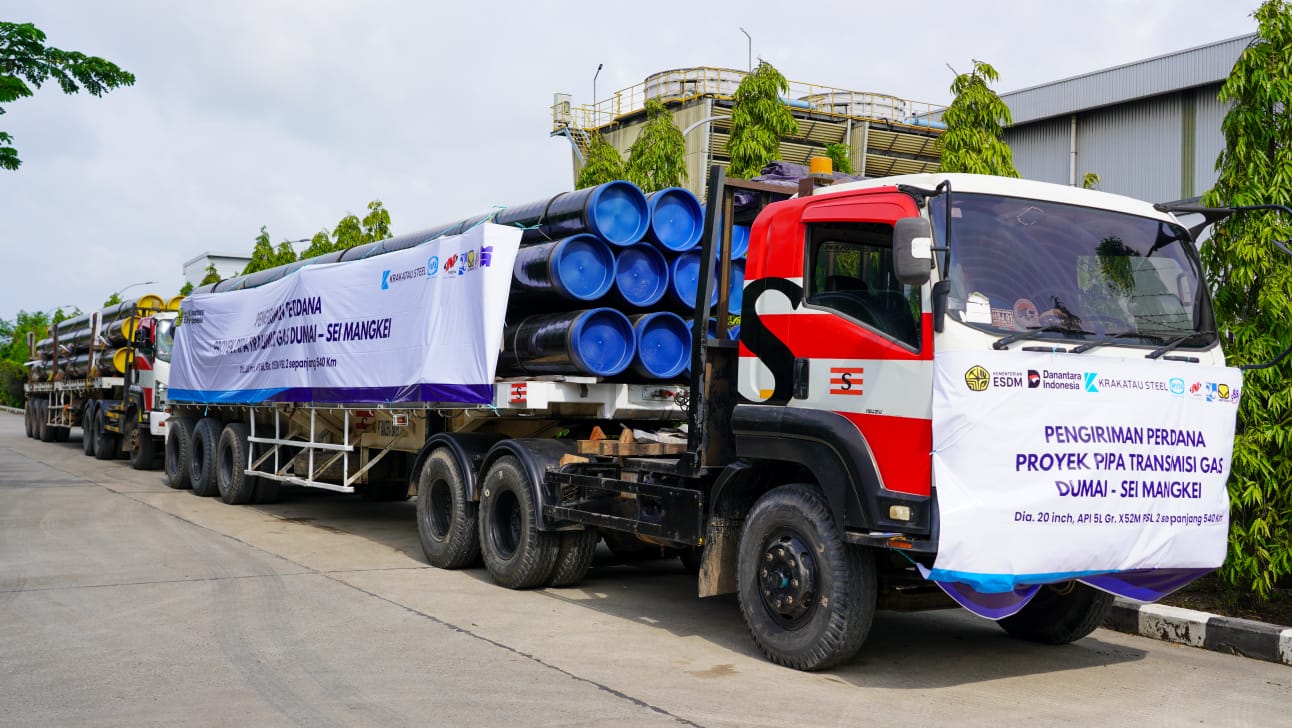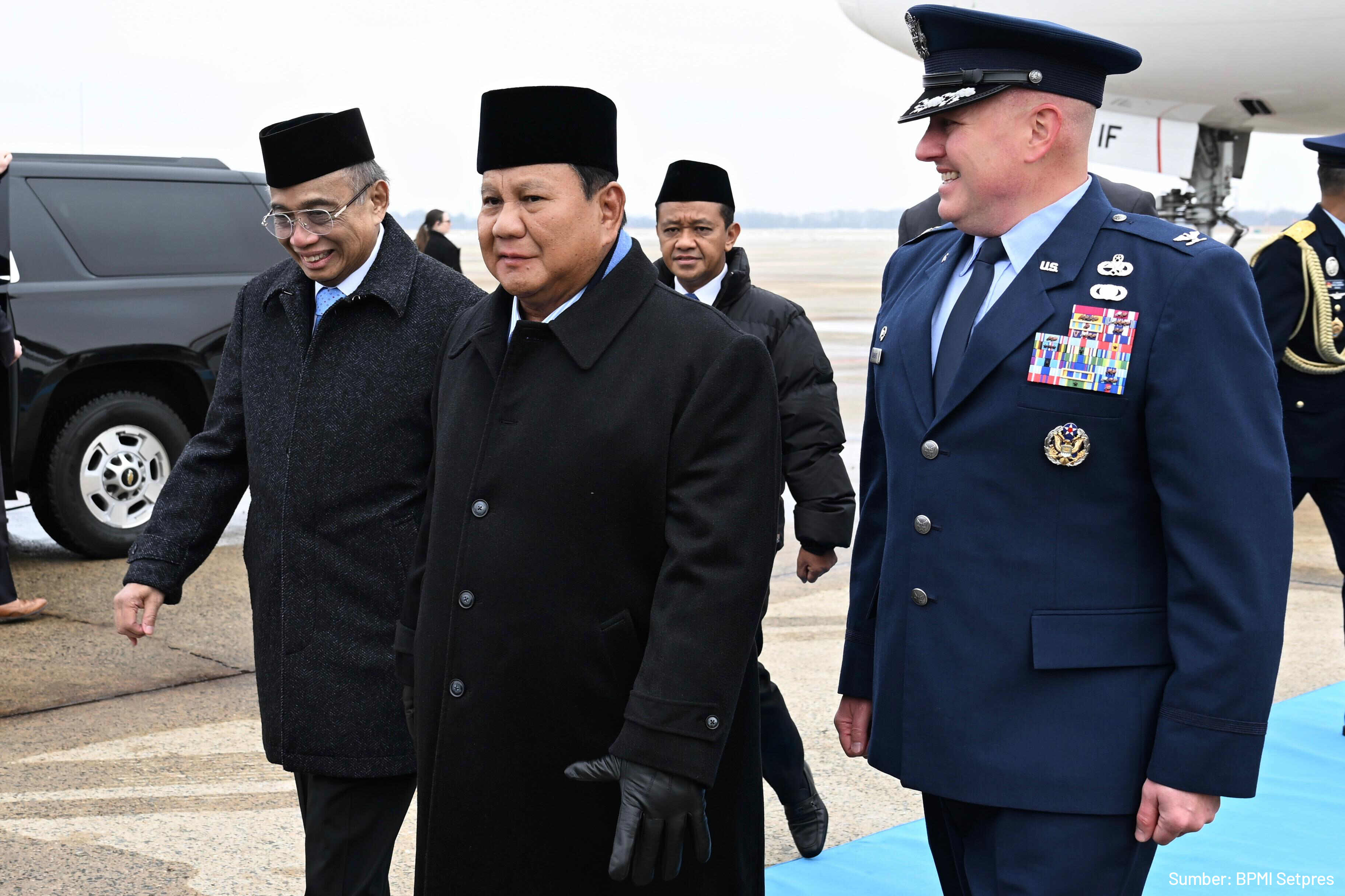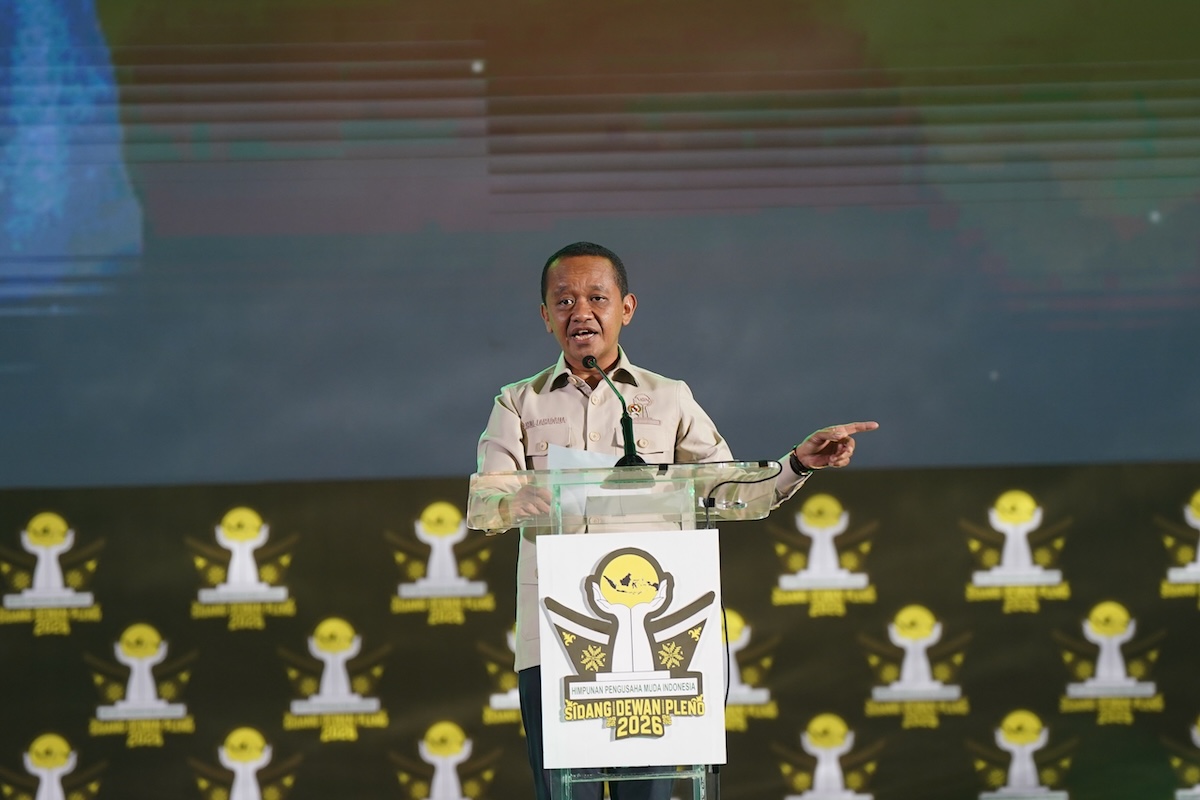
Flight Test of Bioavtur Successful, Strategic Step to Use Renewable Energy for Air Transportation
Flight Test of Bioavtur Successful, Strategic Step to Use Renewable Energy for Air Transportation
Tangerang, 6 Oktober 2021
After the success with Mandatory B30 program for land transportation, Indonesia once again celebrates success in using biofuel for air transportation.
"Today, history was made. Thanks to the support and cooperation of all relevant stakeholders, the first flight that uses biofuel or Bioavtur 2.4%, one that the Indonesian people have long waited for, was finally made between Bandung and Jakarta on a CN235 aircraft", said Minister of Energy and Mineral Resources (EMR), Arifin Tasrif, during an event titled 'Flight Test Success Ceremony of CN235-220 FTB (Flying Test Bed) of PT Dirgantara Indonesia' held on Wednesday (6/10) in Hangar 2 of PT Garuda Maintenance Facility Aero Asia Tbk. (GMF) in Tangerang, Banten Province.
Arifin went on to explain a long series of activities that had took place before the successful flight test. It started with research synergy between Pertamina Research & Technology Innovation (Pertamina RTI) and the Catalyst Engineering Center of Bandung Institute of Technology (PRK-ITB) to develop the so-called 'Merah Putih' (red and white) catalyst in 2012. The catalyst is needed when converting Refined, Bleached, and Deodorized Palm Kernel Oil (RBDPKO) into the raw material of bioavtur. The cooperation was then extended to include PT Kilang Pertamina Internasional (KPI) in the co-processing production trial at Refinery Unit (RU) IV Cilacap. The industrial-scale test processed a mix of RBDPKO, kerosene, and the Merah Putih catalyst. The trial successfully produced bioavtur 2.4%, dubbed Jet Avtur 2.4 (J2.4).
Next, technical tests were completed, and finally flight tests were performed between September 8 and October 6, 2021, including In-flight Engine Restarting tests.
The success is an initial stage in the efforts to increase bioavtur contribution to the air transportation subsector in order to increase national energy security and independence. This activity is listed in the National Strategic Projects (PSN) for Downstream Catalyst Industry and Biohydrocarbon Fuels coordinated by the Ministry of EMR, and is showcased in the National Research Priority (PRN) of the Development of Production Technologies for Palm Oil and Palm Kernel-Based Biofuels, which is coordinated by the National Agency for Research and Innovations (BRIN).
"This achievement started with ambition, self-confidence, and a desire to give the best for the nation and state. Of course, we will not stop and be complacent at this stage. We'll continue the research and development so that we can produce J100 and that bioavtur is used by all Indonesian airlines, and even foreign airlines," added Arifin.
Regulation of Minister of EMR Number 12 of 2015 requires the mixing of biofuel with avtur fuel by 3% in 2020, and 5% in 2025. Minister Arifin expects the support of all parties in the next stages, including during the preparation of a roadmap to commercialization.
According to Arifin, an aviation biofuel industry can be materialized if there is a positive synergy between the government as the regulator, research institutions, bioavtur producers, and users of aviation biofuel, that is, aviation operators.
Coordinating Minister for Economic Affairs, Airlangga Hartarto, who was present virtually, said in his remarks that the triple helix concept, i.e. a collaboration between universities, industries, and the government, had been implemented well in bioavtur flight test. In the future, the momentum will help make Indonesia as a research and innovation-based country.
"The success of the bioavtur flight test has given high confidence in our ability to utilize domestic resources, especially palm oil, to build national energy independence. This success will reduce dependence on imported energy and can encourage economic growth", said Airlangga.
According to Airlangga, to reach these goals, the economies of scale of bioavtur J2.4 must be fulfilled. This can be done by utilizing all facilities provided by the government, both tax facilities, such as super tax deductions for research, and non-fiscal incentives. With avtur consumption is estimated at around 14,000 KL daily, the sales of bioavtur J2.4 is projected to hit around Rp1.1 trillion annually. This will create a strong market needed to develop the national palm-oil industry.
Referring to the Paris Agreement, the aviation sector is one of the top ten global CO2 emitters. Emissions from the aviation sector are expected to rise sharply by mid-century, accounting for 2.1% of the global contribution. The International Civil Aviation Organization (ICAO) has issued an aspirational target, namely 2% fuel efficiency per year until 2050 and Carbon Neutral Growth from 2020.
Director General of Air Transportation, Novie Rianto, highly expressed his appreciation for the development of alternative fuels for aircraft because it was in line with the roadmap of the Directorate General of Air Transportation.
"The use of biofuels for aircraft shows an effort to reduce carbon emissions in the aviation sector, in accordance with policies issued by ICAO," said Novie.
President Director of PT Pertamina (Persero), Nicke Widyawati, said that the J2.4 bioavtur produced by Cilacap Unit of PT KPI showed performance equivalent to fossil fuel avtur. Since 2014, PT Pertamina has pioneered research and development of bioavtur in its Dumai and Cilacap Refinery Units.
Nicke explained that the performance of bioavtur was optimal, showing a tiny 0.2%-0.6% difference from the performance of fossil avtur.
"Bioavtur J2.4 contains 2.4% vegetable oil, which is the maximum achievement with the existing catalyst technology", Nicke said. She added that PT KPI Unit Cilacap was chosen because it had the technical capacity to develop national bioavtur. This is inseparable from the business portfolio of Cilacap Refinery Unit, which is the biggest producer of Aviation Turbine fuel in Indonesia. In 2020, it produced 1,852,000 barrels of aviation fuel.
PT Pertamina developed the J2.4 bioavtur in two main stages. The initial stage of development was done by Dumai Unit of PT KPI in its Distillate Hydrotreating Unit (DHDT). Through a 'Hydrodecarboxylation' process, biohydrocarbon diesel and bioavtur were produced on a laboratory scale. Next, through a 'Hydrodeoxygenation' process, a more efficient biohydrocarbon diesel was successfully produced.
The peak was in 2020, when Dumai Unit successfully produced D-100 biohydrocarbon diesel, which was 100% made from RBDPO. For the record, RBDPO is palm oil that has been refined to remove its free fatty acid, and then purified to remove the color and odor. This initial stage is an important step in the development of green products, including green diesel and bioavtur.
The next stage was carried out at Cilacap Refinery Unit. Here, bioavtur development was carried out in Treated Distillate Hydro Treating (TDHT). The Merah Putih catalyst used for bioavtur production was manufactured at a facility belonging to Clariant Kujang Catalyst in Cikampek, under direct supervision of the Research Technology and Innovation (RTI) Team of PT Pertamina. The Cilacap Refinery Unit can produce up to 8,000 barrels of bioavtur per day. From 2023, the production capacity will be increased to meet market demand.
President Director of GMF, Andi Fahrurrozi, explained that during static tests, GMF always complied with the manuals issued by aircraft engine manufacturers. A special procedure was also employed to ensure that jet avtur A1 did not mix up with bioavtur J2.4 during the tests to provide representative and accurate results.
"As a result, the performance of the two is very close. There is no significant difference, so it was decided J2.4 bioavtur can undergo non-static tests on a CN235-220 aircraft," said Andi.
President Director of the Indonesia Oil Palm Plantations Fund Management Agency (BPDPKS), Eddy Abdurrachman, stated that BPDPKS was committed to continuously making contributions and research funds to support the government in reaching the energy mix targets. For example, it will support research on biodiesel development, development of other bio-hydrocarbons, and the conversion of biomass into energy. Research funds were given to an ITB team led by Prof. Subagjo, and the team has come up with innovations in the processing and production of green diesel and green gasoline called 'palm gasoline' and green avtur dubbed 'bioavtur'.
Funding support has been provided for the testing of bioavtur in both static and flight tests. In the academic sphere, the Faculty of Mechanical and Aerospace Engineering of ITB has started bioavtur testing on a laboratory scale since 2012.
Iman K. Reksowardojo, Head of ITB Bioavtur Flight Test Research Team, said that bioavtur research had produced several doctorate, masters, and bachelor's degrees in Indonesia and overseas as well as articles published in international scientific journals of high reputation, in collaboration with Hokkaido University of Japan, ASEAN University Networking/Southeast Engineering Education Development (AUN/SEED-Net), JICA, and Pertamina.
Meanwhile, Head of Catalyst Research Team of ITB, Prof. Subagjo, said he hoped this small ripple of success would grow and trigger a big wave of successes in the field of processing technology in Indonesia. This way, other sectors will adopt the method to produce the similar or even bigger changes. (*) (IY)
Media Contacts:
Agung Pribadi
Head of Bureau of Communication, Public Information Services, and Cooperation
Ministry of EMR
(klik@esdm.go.id)
-----------------------------------------------------------------------------------------
Dian Lorinsa
Government PR, Directorate General of New, Renewable Energy and Energy Conservation
Ministry of EMR
(08119892169/dian.lorinsa@esdm.go.id)
-----------------------------------------------------------------------------------------
Axel Priambodo
Subdivision Head - Deputy III
Coordinating Ministry for Economy
(0811815788 / axlpriambodo@gmail.com
-----------------------------------------------------------------------------------------
Levina W. Gustarika
Government PR, Directorate General of Air Transportation
Ministry of Transportation
(081380056676 / humas.dgca@gmail.com)
-----------------------------------------------------------------------------------------
Ifki Sukarya
Corporate Secretary
Subholding Refining & Petrochemical
PT Kilang Pertamina Internasional
(0811148234/isukarya@pertamina.com)
-----------------------------------------------------------------------------------------
Iman K. Reksowardojo
Head of Bioavtur Flight Test Reseach Team, ITB
(08562101371/iman@ftmd.itb.ac.id)
-----------------------------------------------------------------------------------------
Prof. Subagjo
Head of Catalyst Research Team, ITB
(08122085744)
-----------------------------------------------------------------------------------------
Arfie Thahar
Head of Services Program Division
Indonesia Oil Palm Plantations Fund Management Agency (BPDP KS)
(081311847531 / arfie.thahar@bpdp.or.id)
-----------------------------------------------------------------------------------------
Eko Budi Santoso
Program Manager of CN 235-200 FTB
PT Dirgantara Indonesia (DI)
(081573707669 / ekobudi@indonesian-aerospace.com)
-----------------------------------------------------------------------------------------
Rian Fajar Isnaeni
VP Corporate Secretary & Legal
PT Garuda Maintenance Facility Aero Asia Tbk
(0811 9560060 / rian.fajar@gmf-aeroasia.co.id
Share This!

